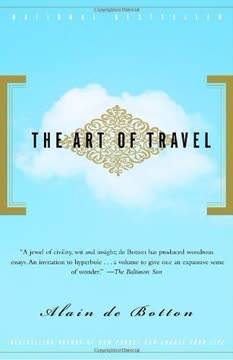つの重要なポイント
1. ソクラテス:知的独立の体現
「もし私たちがそのような冷静さに匹敵できず、性格や業績についてのいくつかの厳しい言葉の後に涙を流す傾向があるなら、それは他人の承認が私たちが正しいと信じる能力の重要な部分を形成しているからかもしれない。」
常識を疑うこと。 ソクラテスは社会的な規範に挑戦し、深く根付いた信念を疑う勇気を体現しました。彼は、真の知恵は自分の無知を認識し、常に自分の仮定を検証することから来ると示しました。
ソクラテスの方法。 このアプローチは以下を含みます:
- 常識とされる主張を特定する
- それが誤りである可能性を想像し、例外を探す
- 例外を考慮して初期の主張を修正する
- 反証できない主張に達するまでこのプロセスを繰り返す
この方法を用いることで、複雑な問題に対するより微妙で正確な理解を育み、知的独立と批判的思考能力を養うことができます。
2. エピクロス:シンプルさを通じて幸福を再定義する
「少しで満足しない人は、何も満足しない。」
幸福の本質。 エピクロスは、真の幸福は以下から生じると主張しました:
- 友情
- 自由
- 思索(熟考)
彼は、これらの要素が物質的な富や贅沢よりも満足にとって重要であると信じていました。
消費文化への挑戦。 エピクロスの哲学は私たちに以下を促します:
- 自然で必要な欲望と人工的で不必要な欲望を区別する
- 終わりのない欲望を追いかけるのではなく、基本的なニーズを満たすことに焦点を当てる
- シンプルな喜びや意味のある関係に喜びを見出す
この視点を採用することで、物質主義に関連する不安や不満から解放され、より平和で満たされた生活を送ることができます。
3. セネカ:ストイックな知恵で逆境を受け入れる
「私たちは、充足の要素を自発的にマスターできないために苦しむ。」
不幸に備える。 セネカは以下を提唱しました:
- ネガティブなビジュアライゼーション(逆境の予測)を実践する
- 理性的な思考を通じて感情的な回復力を育む
- 自分のコントロールを超えたものを受け入れる
苦しみを知恵に変える。 ストイックなアプローチは以下を含みます:
- 外部の出来事は中立であり、私たちの判断が苦痛を生むことを認識する
- 理性を使って挑戦を成長の機会として再構築する
- 逆境に直面して勇気、正義、自制心などの美徳を育む
これらの実践を採用することで、より大きな感情的安定を育み、人生の最も困難な瞬間にも意味を見出すことができます。
4. モンテーニュ:不完全な人間の状態を祝う
「私たちの苦しみの中で最も無骨なものは、自分の存在を軽蔑することだ。」
人間性を受け入れる。 モンテーニュは私たちに以下を奨励しました:
- 自分の身体機能や不完全さを受け入れる
- 人間の習慣や信念の多様性を認識する
- 社会的な規範や偏見を疑う
自己検証の価値。 モンテーニュのエッセイは以下を示しています:
- 内省と正直な自己反省の重要性
- 個人的な経験の豊かさを知恵の源として認識する
- 自己発見と理解のためのツールとしての執筆の力
モンテーニュの例に従うことで、より大きな自己受容と人間経験の微妙な理解を育むことができます。
5. ショーペンハウアー:愛の生物学的必然性を理解する
「それによって決定されるのは、次世代の構成、つまり将来の人類の存在と特別な構成に他ならない。」
愛の生物学的衝動。 ショーペンハウアーは以下を主張しました:
- ロマンチックな魅力は無意識の生殖意志によって駆動される
- 私たちは遺伝的な弱点を補完できるパートナーに引かれる
- 愛の強度は種にとっての重要性に比例する
関係への影響。 この視点は以下を示唆します:
- 個人の幸福と生物学的必然性の間の潜在的な対立
- 長期的なパートナーシップにおける現実的な期待の必要性
- 配偶者選択における無意識の動機を理解する価値
ショーペンハウアーの理論は一見落胆させるかもしれませんが、関係に対する自己認識と共感を深める助けとなります。
6. ニーチェ:個人の成長のための苦しみの必要性
「もし快楽と不快が密接に結びついていて、できるだけ多くの一方を望む者は、もう一方もできるだけ多く持たなければならないとしたら?」
人生の挑戦を受け入れる。 ニーチェは以下を提唱しました:
- 困難を成長と自己実現の機会として見る
- 安逸と快適さの追求を拒否する
- 逆境を通じて回復力と強さを育む
「アモール・ファティ」(運命愛)の概念。 これには以下が含まれます:
- 苦しみを含むすべての側面を受け入れる
- 障害を克服する中で意味と目的を見出す
- 苦痛を個人の成長と創造性に変える
ニーチェの視点を採用することで、より大きな回復力を育み、人生の避けられない挑戦において充実感を見出すことができます。
7. 哲学の慰め:人生の挑戦に対する知恵
「私にとって関心のある人々には、苦しみ、荒廃、病気、虐待、侮辱を望む。彼らが深い自己軽蔑、自己不信の苦痛、敗北者の悲惨さに不慣れでないことを望む。」
実践的な知恵としての哲学。 ここで取り上げた哲学者たちは以下を提供します:
- 人生の困難に対処するためのツール
- 伝統的な思考に挑戦する視点
- 個人の成長と自己実現のためのインスピレーション
哲学的洞察の応用。 私たちは以下から利益を得ることができます:
- 社会的な規範や自分の仮定を疑うこと(ソクラテス)
- 生活をシンプルにし、重要な関係に焦点を当てること(エピクロス)
- 理性を通じて感情的な回復力を育むこと(セネカ)
- 不完全な人間性を受け入れること(モンテーニュ)
- 愛の生物学的基盤を理解すること(ショーペンハウアー)
- 人生の挑戦に意味を見出すこと(ニーチェ)
これらの哲学的なアイデアに取り組むことで、人生の挑戦に対するより微妙な理解を育み、日常生活においてより大きな平和、知恵、充実感を見出すことができます。
最終更新日:
FAQ
What's "The Consolations of Philosophy" about?
- Philosophical Guidance: "The Consolations of Philosophy" by Alain de Botton explores how philosophy can provide comfort and guidance in dealing with life's challenges.
- Six Philosophers: The book examines the ideas of six philosophers: Socrates, Epicurus, Seneca, Montaigne, Schopenhauer, and Nietzsche, each offering insights into different aspects of human suffering.
- Practical Application: De Botton illustrates how these philosophical ideas can be applied to modern life, addressing issues like unpopularity, financial struggles, frustration, inadequacy, heartbreak, and difficulties.
- Philosophy as Therapy: The book positions philosophy as a form of therapy, offering practical advice and wisdom to help readers navigate personal and existential challenges.
Why should I read "The Consolations of Philosophy"?
- Accessible Philosophy: Alain de Botton makes complex philosophical ideas accessible and relevant to everyday life, making it a great introduction to philosophy.
- Practical Insights: The book provides practical insights and advice on dealing with common human problems, making it useful for personal growth and self-reflection.
- Engaging Writing: De Botton's engaging writing style combines humor, anecdotes, and historical context, making the book both informative and entertaining.
- Timeless Wisdom: By exploring the thoughts of renowned philosophers, the book offers timeless wisdom that can help readers find comfort and meaning in their lives.
What are the key takeaways of "The Consolations of Philosophy"?
- Socrates on Unpopularity: Socrates teaches the importance of staying true to one's beliefs despite societal disapproval, emphasizing the value of independent thinking.
- Epicurus on Money: Epicurus suggests that true happiness comes from simple pleasures, friendship, and freedom, rather than wealth and luxury.
- Seneca on Frustration: Seneca advises accepting the inevitability of frustration and using reason to manage emotions and expectations.
- Montaigne on Inadequacy: Montaigne encourages embracing human imperfection and finding contentment in the ordinary aspects of life.
How does Alain de Botton use Socrates' philosophy in the book?
- Consolation for Unpopularity: Socrates' philosophy is used to address the fear of unpopularity, teaching the importance of standing by one's convictions.
- Independent Thinking: Socrates exemplifies the value of questioning societal norms and thinking independently, even in the face of opposition.
- Rational Confidence: The book highlights Socrates' rational confidence in his beliefs, encouraging readers to develop their own reasoned convictions.
- Intelligent Skepticism: Socrates' life and death serve as an invitation to practice intelligent skepticism and seek wisdom through philosophy.
What does Epicurus teach about money in "The Consolations of Philosophy"?
- Simple Pleasures: Epicurus teaches that happiness is derived from simple pleasures, such as friendship, freedom, and thought, rather than material wealth.
- Natural Desires: He distinguishes between natural and necessary desires and those that are neither, suggesting that fulfilling basic needs is sufficient for happiness.
- Critique of Luxury: Epicurus critiques the pursuit of luxury, arguing that it does not lead to greater happiness and can distract from more meaningful pursuits.
- Advertising and Desires: The book discusses how modern advertising skews our perception of needs, promoting unnecessary desires that Epicurus would advise against.
How does Seneca's philosophy address frustration?
- Acceptance of Reality: Seneca advises accepting the inevitability of frustration and understanding that it stems from unrealistic expectations.
- Preparation for Adversity: He emphasizes the importance of preparing for adversity and recognizing that suffering is a part of life.
- Rational Management: Seneca encourages using reason to manage emotions and adjust expectations, reducing the impact of frustration.
- Philosophy as a Tool: The book presents Seneca's philosophy as a tool for enduring life's challenges with dignity and equanimity.
What insights does Montaigne offer on inadequacy?
- Embrace Imperfection: Montaigne encourages embracing human imperfection and accepting the limitations of reason and intellect.
- Ordinary Life: He finds value in the ordinary aspects of life, suggesting that wisdom lies in accepting and understanding our everyday experiences.
- Critique of Reason: Montaigne critiques the overemphasis on reason, highlighting the importance of acknowledging our emotional and physical selves.
- Self-Acceptance: The book uses Montaigne's philosophy to promote self-acceptance and the idea that we are adequate in our own unique ways.
How does Schopenhauer's philosophy provide consolation for heartbreak?
- Inevitability of Suffering: Schopenhauer acknowledges the inevitability of suffering in love, viewing it as a natural part of the human condition.
- Will-to-Life: He introduces the concept of the will-to-life, which drives our desires and often leads to romantic suffering.
- Understanding Rejection: Schopenhauer's philosophy helps readers understand rejection as a biological imperative rather than a personal failure.
- Acceptance of Pain: The book encourages accepting the pain of heartbreak as a necessary experience, offering a philosophical perspective on love's challenges.
What role does Nietzsche's philosophy play in "The Consolations of Philosophy"?
- Embrace of Difficulty: Nietzsche's philosophy emphasizes the importance of embracing difficulties as a path to personal growth and fulfillment.
- Critique of Comfort: He critiques the pursuit of comfort and ease, advocating for a life of challenge and striving for greatness.
- Creative Suffering: Nietzsche views suffering as a catalyst for creativity and self-discovery, encouraging readers to find meaning in adversity.
- Philosophical Courage: The book uses Nietzsche's ideas to inspire philosophical courage and the pursuit of a life rich in experiences and challenges.
What are the best quotes from "The Consolations of Philosophy" and what do they mean?
- "We will cease to be so angry once we cease to be so hopeful." This quote from Seneca highlights the connection between expectations and frustration, suggesting that adjusting our hopes can reduce anger.
- "Nothing satisfies the man who is not satisfied with a little." Epicurus emphasizes the sufficiency of simple pleasures and the futility of excessive desires.
- "Upon the highest throne in the world, we are seated, still, upon our arses." Montaigne humorously reminds us of our shared humanity and the importance of humility.
- "The secret for harvesting from existence the greatest fruitfulness and the greatest enjoyment is – to live dangerously!" Nietzsche encourages embracing risk and challenge as a means to achieve fulfillment.
How does Alain de Botton make philosophy accessible in "The Consolations of Philosophy"?
- Engaging Writing Style: De Botton uses an engaging writing style, combining humor, anecdotes, and historical context to make philosophical ideas relatable.
- Practical Examples: The book provides practical examples of how philosophical concepts can be applied to everyday life, making them relevant to modern readers.
- Clear Explanations: Complex philosophical ideas are explained clearly and concisely, making them accessible to those new to philosophy.
- Human Stories: De Botton uses human stories and experiences to illustrate philosophical concepts, helping readers connect with the material on a personal level.
What is the structure of "The Consolations of Philosophy"?
- Six Chapters: The book is divided into six chapters, each focusing on a different philosopher and a specific human challenge.
- Philosopher Profiles: Each chapter provides a profile of the philosopher, their key ideas, and how these ideas can be applied to modern life.
- Thematic Approach: The book takes a thematic approach, addressing issues like unpopularity, money, frustration, inadequacy, heartbreak, and difficulties.
- Philosophical Lessons: Each chapter concludes with philosophical lessons and practical advice, offering readers tools for personal growth and self-reflection.
レビュー
本書『哲学の慰め』は賛否両論を受けている。多くの人々は、その哲学へのアクセスしやすいアプローチと実践的な人生のアドバイスを称賛している。読者は、デ・ボトンが複雑なアイデアを親しみやすくし、有名な哲学者の知恵に慰めを見いだす能力を評価している。一方で、哲学的概念を単純化しすぎている、あるいは自己啓発に偏りすぎていると批判する声もある。全体として、多くの読者は本書を日常生活における哲学の関連性を紹介する魅力的な入門書と見なしているが、より深い洞察と厳密さを求める声もある。


















